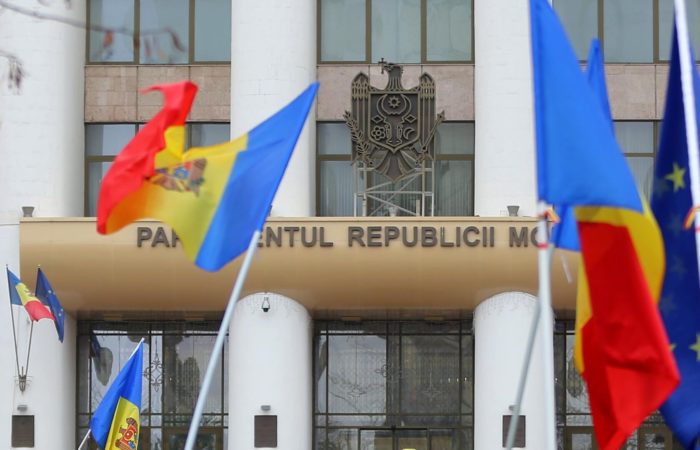

Thirteen political parties in Moldova signed the For Europe Pact on Sunday, pledging to help the country join the EU.
⠀
The initiative to sign the “For Europe” pact was taken by the “Together” political bloc created in April of this year. The authors of the project believe that the signing of this document will help prevent “the privatization of the idea of European integration by one party.” Immediately after the creation of the bloc, the draft pact was submitted for discussion, and all pro-European political formations were invited to sign it.
⠀
“We, the signatories of the Pact for Europe, undertake a political commitment to fully contribute to the achievement of the goal of Moldova’s integration into the European Union… To promote the rule of law, social cohesion and national solidarity around the strategic goal of European integration, placing public interests above personal, group and party interests,” the text of the document says.
⠀
The signing ceremony took place at the National Museum of the History of Moldova in the presence of parliament members and diplomats. The document was signed by representatives of 13 political parties of the republic, including the ruling Action and Solidarity party. To prove the equivalence of the political formations that supported the pact, the order in which their representatives signed the document was determined by lot.
⠀
The political formations that signed the pact undertake not only to promote the idea of European integration, but also to ensure free and fair elections, as well as to protect human rights, including those of national minorities. They believe that joining the EU is the only strategy that will lead the country to prosperity.
⠀
The EU summit on December 14 decided to launch negotiations on future membership of the European Union with Ukraine and Moldova. In June 2022, the EU granted EU candidate country status to Ukraine and Moldova, setting several strict conditions for the formal start of accession negotiations. The EU has repeatedly admitted that such a decision was largely symbolic in order to support Kyiv and Chisinau in their confrontation with Moscow.
⠀
The status of a candidate country in itself, as well as the start of negotiations, does not necessarily mean that the country will join the European Union; these steps also do not oblige Brussels to anything.
⠀
Obtaining candidate status is only the beginning of a rather long journey towards joining the EU. Turkey has been in candidate status since 1999, and has been negotiating membership with the EU since 2005, North Macedonia since 2005, Montenegro since 2010, and Serbia since 2012. Croatia was the last country to join the EU in 2013; the process took 10 years.